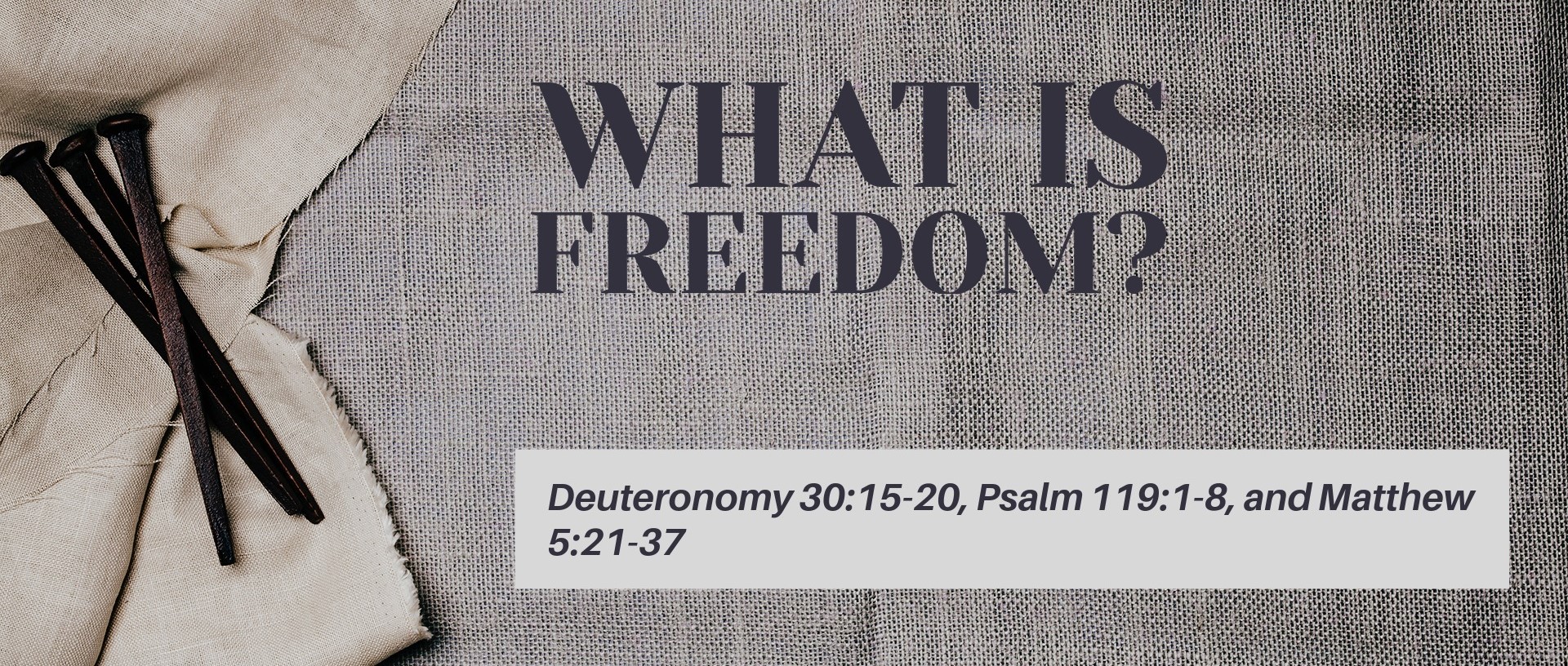From the Romans to the Biden era, the word “liberal” has taken on many meanings. It is one of those “it all depends” words. Yet, it has not always had a negative connotation as it does today in political/social circles.
The cradle of its development, which impacts us today, was in 18th and 19th century Europe. It was a response to absolute monarchical rule. Liberal was the idea of individual freedom and liberty, through limiting the powers of government. Government was expected to protect individual freedom, while not abusing its power.
It is not difficult to see the progression from this to the outright demand for boundaryless freedom we see today. The carnal mind at work.
This is not a matter that followers of Christ can ignore. As society slides into deeper individualism, we are not immune: “Also from among yourselves men will rise up, speaking perverse things, to draw away the disciples after themselves” (Acts 20:30). The natural mind seeks individual freedom from God’s rule. And there is no shortage of opportunities for that. Unfortunately, the Apostle Paul’s warning has been accurate for God’s people from the time he gave it.
The 1970’s were a turbulent time for churches in America. However, the polarization of American religious groups into liberal and conservative camps occurred long before the rise of the Christian Right in the 1970s. The political activism of ecumenical Protestants helped realign religious communities into political coalitions. Many churches slid into a very liberal state under this ecumenical approach. Despite efforts to put the Church “back on track” in the 1980’s, liberal thinking once again assumed control. And here we are today.
The question for us is, are we affected by liberalism? Our view of liberalism will differ from the secular point of view, but the basic underlying values will be the same. Living by the law of God orders the type of freedom we value. This freedom is unknown to the natural mind which sees freedom as being free from restraints – particularly the law of God. But it is possible that we can find God’s law limiting and can desire freedom within the rule of God’s law.
How can this be? God’s law has two facets to it – the letter and the spirit. “… who also made us sufficient as ministers of the new covenant, not of the letter but of the Spirit; for the letter kills, but the Spirit gives life” (2 Corinthians 3:6). God’s law has always been spiritual in nature. We are to live by its spiritual intent. That intent has always been there. But, without the Holy Spirit, Israel of the Old Testament could only keep it in the letter. They could not see the spiritual intent or spiritual principles involved.
Christ came to fulfill the law. He did this by paying the penalty for sin and making the Holy Spirit available to repentant sinners. In Matthew 5, He made it quite clear what the spiritual intent of the law was. The spirit made it possible to live by intent. The intent means that the law is a way of life. It contains principles for all aspects of life. It is an attitude that is summed up by love. Love is a principle of life.
Solomon said that keeping the commandments was the whole duty of man. Within the commandments are the spiritual principles of our obligation to love God more than ourselves and to love fellowman with a love at least equal to self.
While God does not give us every specific detail of the spirit of the law, He expects us, through the Holy Spirit, to apply principles to every aspect of our lives. The law does not list every element of the whole duty of man.
This can mean that there is a lot of wriggle room for us to find loopholes, if we are so inclined. Our minds can reason that fulfilling the letter of the law is sufficient for righteousness. “For I bear them witness that they have a zeal for God, but not according to knowledge. For they being ignorant of God’s righteousness, and seeking to establish their own righteousness, have not submitted to the righteousness of God. For Christ is the end of the law for righteousness to everyone who believes” (Romans 10:2-4). “… for if righteousness comes through the [letter of the] law, then Christ died in vain”(Galatians 2:21).
So how does “liberal” fit into this scenario? The liberal mind will focus on the letter of the law – wanting to go as far into this world as he feels he can and still be “right” with God. The spiritual principles are not the ruling principles in his or her life. They have a zeal for God, but without knowledge. Attitude is not as important as the physical requirements.
The liberal mind does not want full-on spiritual restrictions on the natural mind. Perhaps that is why government has at times been a big issue in the Church. Biblical ambiguity on some of life’s issues means there are many different approaches within the Church. But is God’s law so ambiguous as some of us want to think?
Christ never sinned because He did not want to sin. That is the mind we should strive to emulate. The liberal wants to get as close to sin as he can without losing out on salvation. The liberal will only do as much as he has to. This is the antithesis of Christ’s attitude. “You have that (letter) … but I say unto you (spirit).”
Having the attitude of the “spirit of the law” is the attitude and mind of Christ. “Let this mind be in you which was also in Christ Jesus” (Philippians 2:5).
Brian Orchard


